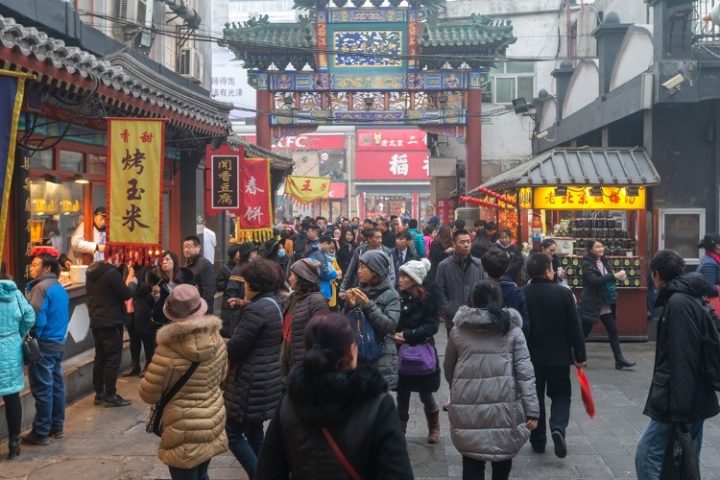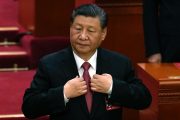
Despite more Chinese cities starting to ease their draconian Covid-19 measures, disparate implementations without much transparency have caused public confusion and frustration.
Beijing, Shanghai, Hangzhou, Shenzhen, Dalian, Wuhan, Ürümqi, Kunming, Harbin, Shenyang, Nanning, and Zhengzhou, as well as Jiangxi and Shandong provinces, have eased some levels of restrictions over the past several days, particularly in regard to Covid testing mandates.
A 48-hour negative test result is no longer required for public transport or to enter most public venues. Curbs on the purchase of over-the-counter cold and fever medication have also been eased in a few cities, including Beijing.
On December 6, Beijing authorities considerably eased Covid-19 measures, permitting gyms and bars to reopen, and restaurants to resume dining-in. More venues also no longer require evidence of negative Covid-19 tests.
The Beijing municipal government issued a series of announcements stating that people entering supermarkets, office buildings, and other public areas such as residential compounds and villages will not have to display evidence of a recent Covid-19 test. Such a welcome move comes after some areas on the outskirts of Beijing recently proactively banned visitors on the pretext of preventing infections.
However, places where people gather in close proximity, such as restaurants, karaoke bars, gyms, and spas — along with nursing homes and kindergartens — still necessitate negative test results for entry.
“Important units and large events, based on [their] needs, can decide on what their testing requirements will be,” based on the six-point announcement posted on the official Beijing Municipal Government website.
Shortly thereafter, restaurants were informed that customers could dine-in again. Dining in had largely been restricted in most of the city in November after a spike in cases in the populous Chaoyang district.
Although Beijing authorities declared that they were removing test requirements for public transportation, much of the details of other Covid-19 relaxations were left to the discretion of individual districts to administer under broad and unclear guidelines.
The lack of clarity has caused confusion and uncertainty among residents, as they remain unsure if they will be hauled away if they are infected or be permitted to isolate at home.
For instance, although some restaurants and shops have been permitted to open, others are still awaiting the green light from the authorities to resume business. Further adding to the confusion is the fact that some malls have also done away with mandating a negative test result for entry, while others still implement the rule.
Last Friday, the authorities also abruptly ordered large numbers of testing booths to close. This sudden closure of the booths caused anger and confusion as people waited for more than an hour in sub-freezing temperatures at testing stations.
Many disgruntled citizens vented their anger on social media, lambasting the long wait and delays in obtaining their test results, which they needed in order to take a taxi or go to work. “I don’t know how civil servants think. How are they carrying out the mantra, ‘To serve the people’?” questioned one netizen on microblogging site Weibo.
Such public anger compelled authorities to swiftly reopen testing stations and publish a list of their locations.
“The problem is the policy from the top and the measures that come below are not always consistent. And the lower down the grassroots you go, the stricter the measures,” complained Beijing resident Tu Jun, 43.
Tu’s income as an insurance agent has been drastically affected by the lockdowns, as he cannot conduct face-to-face meetings with potential and existing clients. Besides, he has been unable to travel home to Wuhan for the past three years to reunite with his parents during the Lunar New Year.
“We are doing the right thing by relaxing Covid-19 measures because the virus has become so weak. The most important thing now is to refine the regulations and ensure there is unified implementation. Give the common people a way to clearly interpret the policy, and not make them have to guess.”
Such Covid-19 easing measures in various Chinese cities came following a slew of nationwide protests that erupted in November, including in Ürümqi in the western region of Xinjiang where a deadly fire killed at least 10 people. As a result of the casualties, hundreds took to the streets to demand an end to mass testing and the months-long and freedom-restricting lockdowns.
The Ürümqi protests swiftly spread to other cities — from Shanghai, Wuhan, and Guangzhou to Zhengzhou, Hangzhou, and Beijing — in the largest show of public anger in decades. Throngs of protesters were arrested or called in for questioning.
There are speculations that the health authorities may soon downgrade Covid-19 to a category of less serious infectious diseases. This implies that the alleged need for authorities to order people into forced quarantine and lockdowns would be greatly reduced.
Chinese stocks rallied on Monday owing to news of Covid-19 easing, but groups of protests have persisted.
For example, in Wuhan University in Hubei province, hundreds of students protested in the rain on Sunday night outside the university’s administration building. Protesters demanded that the university permit them to return home and called for more transparent protocols.
That being said, despite the considerable easing of Covid-19 measures in the past days, a recent study revealed that more than half of Chinese would postpone travel abroad, for periods from several months to more than a year, even if border restrictions were to ease soon. Such sentiments reveal that Chinese consumer recovery from years of strict virus containment measures would take time.
Before the arrival of Covid–19 and the introduction of harsh draconian lockdowns, China was previously the world’s largest outbound tourism market. Nonetheless, Chinese overseas visitors, who spent $127.5 billion on trips in 2019, have faded into oblivion after the communist state shut international borders in early 2020 and curtailed non-essential travel by citizens.



